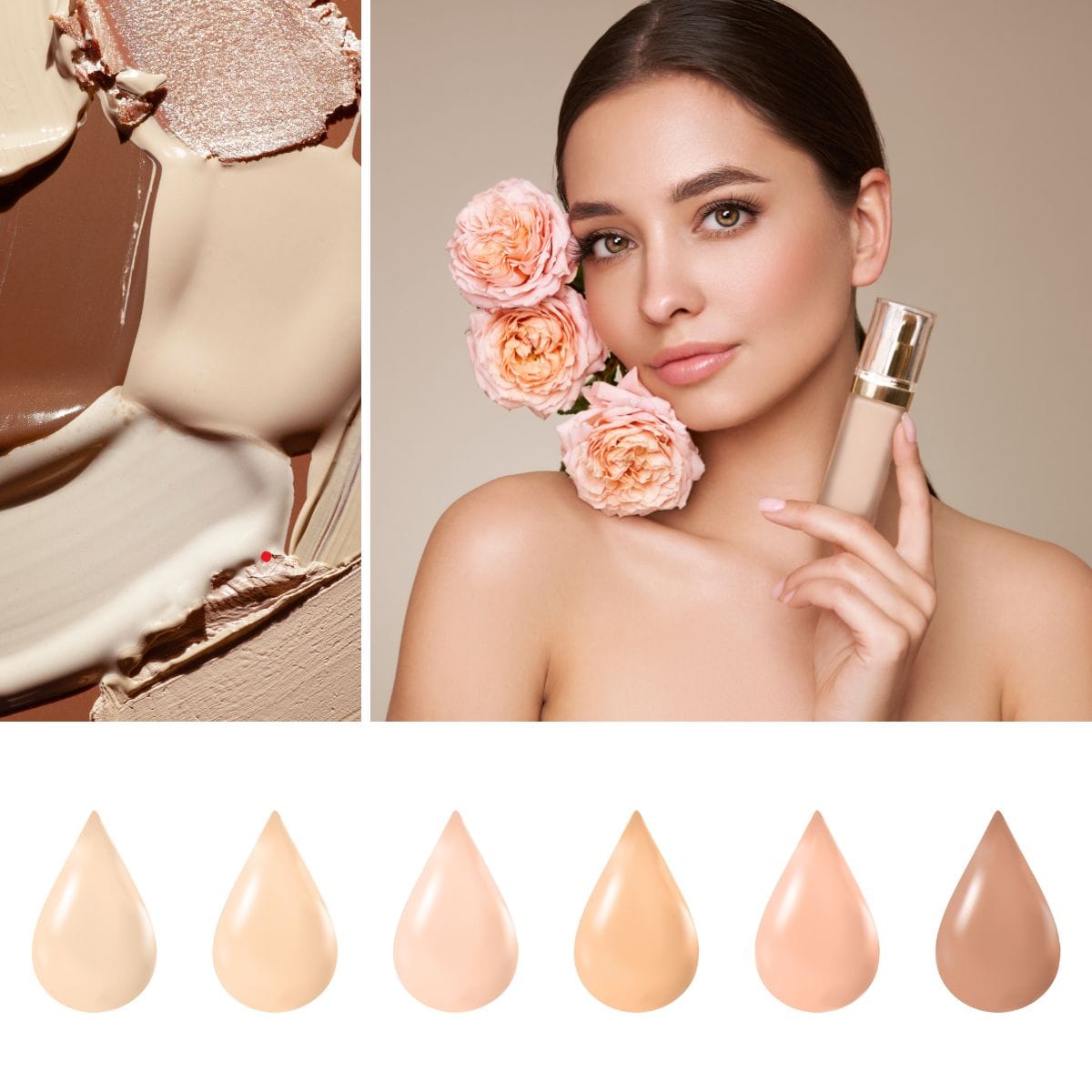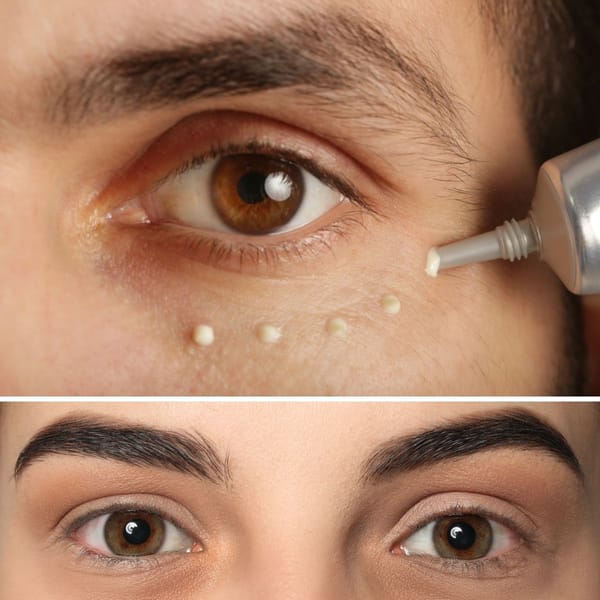Key Takeaways:
- Understand the main differences between BB and CC creams to choose the best option for your skin type and needs.
- Discover the added skin benefits of each cream and how they can enhance your beauty routine.
- Learn practical tips for applying and choosing the right shade for a natural, glowing complexion.
The beauty world is brimming with products that promise to perfect your skin, but few have caused as much buzz as BB and CC creams. These multitasking marvels have become staples in many makeup bags, but with so many options on the market, it can be challenging to discern which is the best fit for your skin. In this article, we'll delve into the world of BB and CC creams, exploring their benefits and differences and how to choose the right one for you.
What Are BB Creams?
BB creams, or beauty balms, are an all-in-one makeup product that offers a combination of skincare benefits and light coverage. Originating in Germany and gaining popularity in Asia, BB creams have taken the Western beauty market by storm. They are designed to provide a natural, dewy finish while also caring for your skin. Many BB creams are infused with key ingredients like hyaluronic acid and vitamin C, offering hydration and antioxidant protection.
BB creams are ideal for those who prefer a more natural look or for days when you want to give your skin a break from heavy makeup. They are especially beneficial for dry skin types, as their hydrating properties help to maintain a healthy skin barrier. Moreover, BB creams often come with sun protection, defending your skin against harmful UVB rays.
The Rise of CC Creams
CC creams, or color-correcting creams, are similar to BB creams but with the added benefit of color correction. These products are designed to address issues like redness or dark spots, providing more coverage than BB creams. The main difference lies in their ability to even out skin tone and improve the appearance of skin imperfections.
CC creams are typically lighter in texture than BB creams, making them suitable for oily skin types that may require a matte finish. They often contain skin-friendly ingredients that not only reduce redness but also control oil production, ensuring your complexion stays balanced throughout the day.
BB Creams and Your Skin Type
When it comes to choosing between BB and CC creams, your skin type plays a pivotal role. For those with dry skin, BB creams can be a godsend, offering added moisture and a glowing finish. On the other hand, if you have oily skin, you might prefer the matte finish and lighter coverage that many CC creams provide.
Sensitive skin types should look for BB or CC creams with minimal additives and fragrance to avoid irritation. Acne-prone skin can benefit from formulas that include salicylic acid or other acne-fighting ingredients. It's essential to select a product that complements your skin's needs to achieve the best results.
Coverage and Finish
The coverage you desire from your makeup products is another factor to consider. BB creams typically offer sheer to light coverage, perfect for those who want to showcase their natural skin while smoothing out minor imperfections. CC creams, however, offer more coverage and are adept at color correction, making them ideal for those looking to conceal uneven skin tone or blemishes.
The finish of the product is also important. BB creams often leave a dewy, radiant finish, contributing to a fresh-faced look. CC creams, while still providing a natural finish, lean towards a more matte appearance, which can be preferable for those with a shinier complexion.
BB and CC Creams for Different Skin Concerns
When it comes to addressing specific skin concerns, both BB and CC creams offer unique benefits. For those with acne-prone skin or uneven skin tone, a BB cream, also known as a beauty balm or blemish balm, can provide light coverage while treating the skin with acne-fighting ingredients. Many BB creams contain salicylic acid or other key ingredients that help to reduce redness and prevent breakouts. On the other hand, CC creams, standing for colour correction or complexion corrector, are ideal for targeting issues like redness or dark spots. Their color-correcting properties work to even out skin tone, making them a suitable choice for those with sensitive skin or those looking to reduce the appearance of skin imperfections.
For individuals with dry skin types, a hydrating BB cream enriched with hyaluronic acid can offer both moisture and a healthy, glowing skin finish. In contrast, those with oily skin may prefer the matte finish that some CC creams provide, helping to control oil production without clogging pores. Both types of creams often come with added skin care benefits like sun protection and vitamin C, making them a valuable addition to any skin care routine. The lightweight texture of these creams ensures that they feel comfortable on the skin, offering everyday coverage without the heavy texture of traditional makeup products.
The Role of BB and CC Creams in Professional Makeup
Professional makeup artists often reach for BB or CC creams when creating a natural, lightweight coverage look. The sheer coverage provided by BB creams makes them an excellent choice for a makeup artist working on a client who desires a no-makeup makeup look or for someone who prefers a lighter coverage option. These skin-friendly ingredients in BB creams help to enhance the skin's texture and provide a base that looks and feels lightweight. CC creams, with their multi-tasking products capabilities, are frequently used for colour correction under foundation or on their own for clients who need more coverage but still want a product that feels lightweight and breathable.
Makeup artists appreciate the multi-functionality of CC creams, which can act as a primer, color corrector, and foundation all in one. This saves time during a client's morning routine and reduces the number of makeup products needed in their kit. Additionally, the added skin care properties of both BB and CC creams mean that makeup artists can care for their client's skin while applying makeup. Whether it's the vitamin C for brightening, hyaluronic acid for hydration, or UV protection to shield from harmful UVB rays, these creams offer a range of skin benefits that go beyond mere coverage. The lightweight coverage and skin-friendly benefits make BB and CC creams a staple in the kits of many makeup artists.
Added Skin Care Properties
Both BB and CC creams boast added skincare benefits, but they differ in their focus. BB creams are like tinted moisturizers with added skin care properties, often including antioxidants, anti-aging ingredients, and sometimes even SPF. They're a great addition to your skin care routine, providing everyday coverage while nurturing your skin.
CC creams, on the other hand, are more focused on color correction and often contain ingredients that target specific skin concerns like redness or hyperpigmentation. They may also include SPF and ingredients like niacinamide, which is known for its skin-brightening properties.
Choosing the Right Shade
Selecting the correct shade of BB or CC cream is crucial for achieving a natural look. Unlike heavier foundations, BB and CC creams are more forgiving, but it's still important to match the product to your skin tone as closely as possible. Many brands offer a limited range of shades, so it may take some trial and error to find your perfect match.
A good tip is to test the cream on your jawline in natural light to see how it blends with both your face and neck. Remember that some formulas might oxidize and change color slightly after application, so give it a few minutes to settle before making a decision.
Application Techniques
Depending on the coverage you're after, you can apply BB and CC creams with your fingers, a beauty sponge, or a makeup brush. Using your fingers can provide a more natural, skin-like finish, while tools like a beauty sponge or brush can offer more precision and a slightly more polished look.
It's important to start with a clean, moisturized face. If you're using a BB or CC cream with SPF, make sure to apply it evenly to ensure adequate sun protection. Blend the product outwards from the center of your face, and don't forget to extend it down to your neck for a seamless transition.
BB and CC Creams in Your Morning Routine
Incorporating BB or CC creams into your morning routine can simplify your makeup process. These multi-tasking products can replace several steps, allowing you to achieve a polished look with minimal effort. After cleansing and moisturizing, apply your BB or CC cream of choice, and you're ready to go. You can add additional makeup products like blush or mascara if desired, but these creams can stand alone for a quick and easy start to your day.
The Evolution of DD Creams
As the beauty industry continues to innovate, DD creams, or daily defense creams, have emerged as the next generation of multi-functional makeup products. They combine the benefits of BB and CC creams with added skin protection, such as anti-pollution and anti-blue light ingredients. While they're not as widely available yet, DD creams represent the ongoing evolution of skincare-infused makeup.
Summary
BB and CC creams are versatile products that cater to a variety of skin types and concerns. BB creams are best for those seeking hydration, a natural finish, and light coverage, while CC creams are ideal for individuals who need more coverage and color correction. When choosing between BB or CC creams, consider your skin type, desired coverage, and the finish you prefer. With the right product, you can achieve a flawless complexion while also caring for your skin.
FAQ Section
Q: Can I use BB or CC cream if I have acne-prone skin? A: Yes, there are BB and CC creams formulated specifically for acne-prone skin. Look for products with non-comedogenic ingredients and acne-fighting components like salicylic acid.
Q: Do I need to apply sunscreen if my BB or CC cream has SPF? A: While BB and CC creams with SPF provide some sun protection, they are often not enough for prolonged exposure. It's best to apply a separate sunscreen to ensure full protection, especially if you spend a lot of time outdoors.
Q: How often should I replace my BB or CC cream? A: Like most makeup products, BB and CC creams have a shelf life. It's generally recommended to replace them every 6 to 12 months to ensure the ingredients are effective and to prevent bacterial growth. Always check the expiration date and pay attention to any changes in texture or smell.







